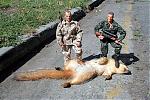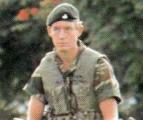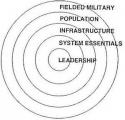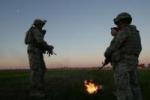In a recent blog post, Bernard Finel takes the military, and government in general, to task for "a weird macho culture" where there is an assumption that "working more hours inherently boosts productivity." I agree that this assumption is not wise, but where I part ways with Bernard is where he critiques McChrystal's now well-known routine of 4 or 5 hours of sleep, lots of running, and one meal per day. He suggests that the impact of such a regimen may be on par with the impairment brought about by small quantities of alcohol.
He specifically states: "We essentially have a general running the war in Afghanistan probably with the impairment level of someone with 2-3 beers in him 24/7, actually worse since sleep deprivation is cumulative."
I disagree with this. My comment is excerpted below...
He doesn't seem to agree. Just curious what the thoughts are from the council. I'm guessing that many here have had similar experiences and that many had experiences more demanding than mine.When you are this immersed in something that you are obsessed with, fatigue becomes less of a factor in your ability to focus... If you legitimately think his routine is too much, I’d say there are thousands of other Officers pushing themselves much harder and, in hindsight, I don’t think it affected anyone’s ability to function.
We have all had the occasional, abnormal experience - whether in Ranger School, in combat, or in some other odd circumstance - where we knew that we had not had enough sleep and we were pushing ourselves beyond a reasonable limit, but sleeping simply was not an option. I am not asking about extreme, short bursts of no sleep, no food, etc. I am curious about the long-term, cumulative effect of less sleep, less food, more strenuous activity, and heightened mental activity.
Do any of you look back upon your deployments and think, "boy, I thought I was thinking straight, but in hindsight, I was way too tired."
I recall extended periods (weeks/months) of getting no more than a few hours of sleep per night - often going for days without sleep. The only time that it impacted me, imo, was when I was doing something that I absolutely hated and had no interest in - like reviewing the document control register or inspecting the always-substandard 5988E's that my crews would pencil-whip. If it was a tactical task, my head was in the game - regardless of the cumulated months of less sleep, less food, etc.
Thoughts? Comments?
Just to be clear, it is optional to begin your comments with "no sh--, there I was..."



















Bookmarks